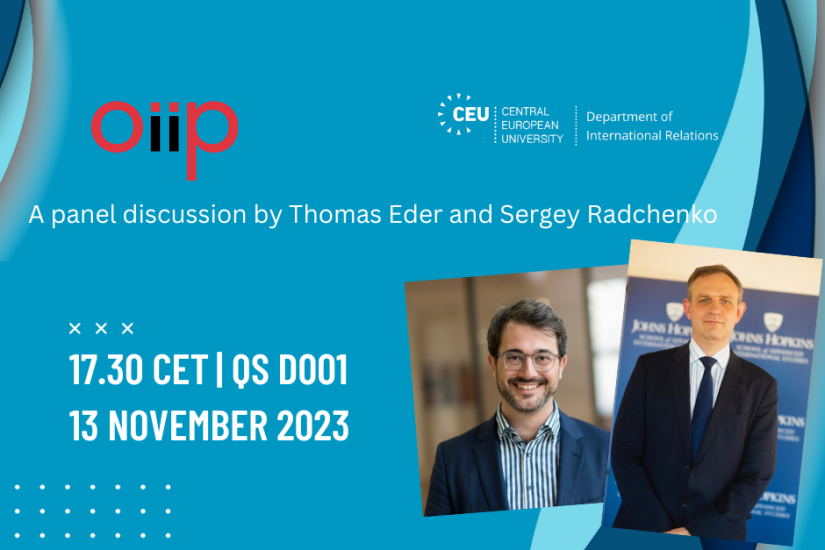
China-Russia Relations and the War in Ukraine, its Settlement and Post-War Order
13.11.2023
17:30 - 19:00
Central European University
Quellenstrasse 51, Wien
China has tried to maintain and gradually expand its close strategic partnership with Russia without crossing the EU’s and Ukraine’s red lines. During the escalated Russia-Ukraine War, China has provided extensive propaganda support to Russia. It has helped Russia avoid diplomatic isolation, and served as its main economic and technological lifeline when Western sanctions hit and Russia’s ties with Europe, the US and East Asian democracies progressively broke down. At the same time, China largely abstained on Russia-related votes at the UN, did not recognize Russia’s attempted annexations, spoke out against the use of nuclear weapons following Russian threats, largely respected Western sanctions, and (as of this writing) refrained from supplying the Russian military with heavy weapons and related ammunition – there has been evidence that Chinese companies have provided dual-use equipment and technology, body armor, small arms, components, and satellite navigation services. Meanwhile, the EU remained China’s leading trade partner, and China was the most important buyer for Ukraine’s exports as long as the Black Sea Grain Deal allowed.
During this panel discussion, the two speakers will address China’s evolving views of and (potential) policy choices during the Russia-Ukraine War, its settlement and post-war security order discussions. They will talk about how the war has impacted China-Russia relations, the competing priorities shaping China’s foreign policy, and what Russia thinks about the new dependence on China. The speakers will draw on the history of China-Russia relations, foreign policy traditions in Beijing and Moscow, official statements, debates among influential foreign policy elites, and current economic data, to tackle these issues and provide a short- to medium-term outlook on likely developments and implications for the EU.
Discussants:
Sergey Radchenko
Wilson E. Schmidt Distinguished Professor at the Johns Hopkins School of Advanced International Studies
Thomas Eder
oiip
In cooperation with Central European Univercity CEU.